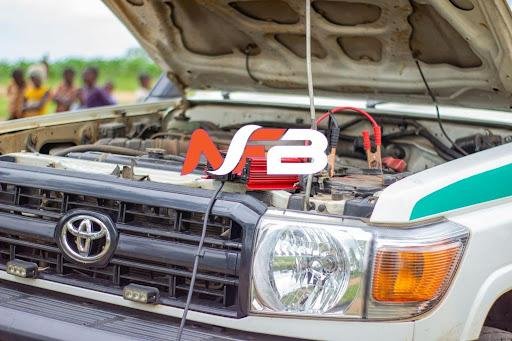Imagine this: You’re cruising down a highway, your favourite playlist setting the mood for the journey ahead when suddenly, your car starts to sputter and slow. Or perhaps you’re navigating through the city and a tire blowout leaves you stranded on the side of the road. Roadside emergencies like these can happen to anyone, no matter how seasoned a driver you are or how reliable your vehicle seems. The key isn’t just in reacting to these situations but being prepared for them.
From flat tires to dead batteries and everything in between, roadside emergencies can disrupt your day, cause stress, and even put you in unsafe situations. However, with a little foresight and the right tools—like access to emergency roadside assistance services—you can handle these unexpected situations with confidence and calm. Here are the most common roadside emergencies and tips to prepare for them.
1. Flat tire
A flat or blown-out tire is one of the most common roadside emergencies. Potholes, debris, or wear and tear can leave you stranded on the side of the road. To handle this:
- Always carry a spare tire, jack, and tire iron in your car.
- Learn how to change a tire safely by practicing in your driveway.
- Invest in a portable tire inflator or sealant for quick fixes.
For added peace of mind, having roadside assistance in the Philadelphia region can ensure professional help is just a call away.
2. Dead Battery
A dead battery can happen unexpectedly, often due to leaving lights on or extreme weather conditions. Here’s how to prepare:
- Keep a set of jumper cables or a portable jump starter in your vehicle.
- Familiarise yourself with how to jump-start a car, or rely on instructions from your car’s manual.
- Regularly check your battery’s condition, especially before long trips.
If you find yourself stuck without power, emergency roadside assistance can quickly get you back on the road.
3. Engine Overheating
An overheating engine can be alarming, but it’s often preventable. To avoid this:
- Regularly check your car’s coolant levels and top them up as needed.
- Inspect hoses and radiators for leaks or wear.
- Pay attention to your temperature gauge, and pull over immediately if it rises to unsafe levels.
Carrying extra coolant in your vehicle can be a lifesaver in these situations.
4. Lockouts
Getting locked out of your car is frustrating, especially if you’re far from home or in an unfamiliar area. To prevent and handle this:
- Keep a spare key in a secure but accessible location.
- Consider using keyless entry systems or smartphone apps to unlock your vehicle.
- Familiarise yourself with local roadside assistance in the Philadelphia region, which often includes car lockout services.
5. Running Out of Fuel
While it may seem avoidable, running out of fuel happens more often than you’d think. To prepare:
- Monitor your fuel gauge regularly and don’t push your luck when it’s low.
- Keep a small, empty fuel canister in your car for emergencies.
- Know the locations of nearby fuel stations, especially on long road trips.
If you do run out of fuel, emergency roadside assistance can deliver roadside gas to you, saving time and stress.
6. Brake Failure
Brake failure is one of the most dangerous roadside emergencies. To handle this situation:
- Pump your brakes rapidly to build up pressure.
- Downshift to a lower gear and use your handbrake gradually.
- Steer the car to the side of the road and let it slow to a stop.
Regular brake maintenance and inspections are essential to avoid such scenarios.
7. Stuck in Snow or Mud
Driving in challenging conditions can leave your vehicle stuck. To prepare:
- Carry traction mats or sand to provide grip under tires.
- Use a sturdy shovel to clear snow or mud around the wheels.
- Avoid spinning the tires as it can dig you in deeper.
Knowing the contact details for roadside assistance in the Philadelphia region can help you get professional help quickly if you’re unable to free your car.
8. Blown Fuses
A blown fuse can leave your vehicle’s critical systems, like lights or wipers, inoperable. To address this:
- Keep a set of spare fuses in your vehicle.
- Learn how to locate and replace fuses in your car’s manual.
- Regularly check your car’s electrical systems for signs of wear or malfunction.
Final Thoughts
Roadside emergencies are unpredictable, but being prepared can make all the difference in how you handle them. Equip your car with essential tools, stay informed about potential risks, and consider subscribing to reliable emergency roadside assistance services. Whether you’re dealing with a flat tire or need roadside assistance in the Philadelphia region, having a plan ensures you stay safe and minimize disruptions.
Preparedness isn’t just about avoiding inconvenience; it’s about protecting yourself and your passengers. By taking these proactive steps, you can confidently tackle any roadside challenge that comes your way.













Leave a Reply